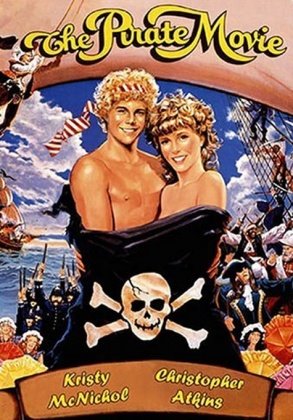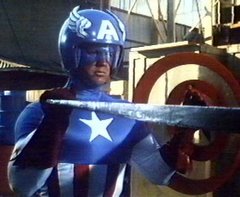
'I Think,' therefore I am...not
Chris Rock has been crowned the funniest comedian alive several by several publications for a reason.
His profane take on everything from domesticity to race is laced with intelligent, nakedly earnest observations.
Here are but a few chestnuts:
On relationships: “A man is only as faithful as his options.”
On comedy: “Comedy is the blues for people who can't sing."
On gay marriage: “Gay people got a right to be as miserable as everybody else.”
On race: “Every town has the same two malls: the one white people go to and the one white people used to go to.”
On sports: “Black people dominate sports in the United States. We're 10% of the population, we're 90% of the Final Four."
On education: “Community college is like a disco with books; 'Here's ten dollars, wanna get my learn on!'"
On celebrity: “Right now, my job is that I'm like an ambulance chaser. I've got to look for movies with white guys falling out of them.”
His stand-up shows are a mix of jokes that zip with machine gun velocity, while others are like a slow-release capsule, taking sweet time before hitting the brain.
Unfortunately for him, his intelligence in selecting film roles has yet to capture the high levels of hilarity as his stage routine. It is a streak that remains unbroken with “I Think I Love My Wife.”
He must have Robin Williams’ agent.
His interest in aiming for material above the standard lowest-common-denominator scraps thrown to the likes of fellow comedians Martin Lawrence or Larry “The Cable Guy” (and yes, the “comedy” of those two is much closer than you may first think), most likely led him to his latest effort “I Think I Love My Wife,” an adaptation of French director Eric Rohmer’s “Chloe in the Afternoon.”
The source film is itself a tad overrated (the esteemed New York Times critic Pauline Kael called it “perfect”), but it does certainly mine some quietly discomforting material. In both “Chloe” and “I Love My Wife,” the male protagonist is tempted by the fruit of another, when a sexy ingénue wiggles her way into the seemingly dull domesticity his married life with wife Brenda (played by Gina Torres).
In Rock’s film, he plays investment banker Richard Cooper who's suffering that infamous marital scratch that apparently comes right at year seven.
And how better itch it than with the perfectly manicured fingernails of Nikki Tru (played by the undeniably sexy Kerry Washington)?
The fact that his current sex life is reaching Sahara-like conditions of aridity does not help matters. Nikki knows Richard's a good man and leans on him far too often as she attempts to get some semblance to her life. But she is in no rush, for she can maintain a platonic distance from him but still reap all the benefits of a relationship (someone to help her move, give her a lift, listen to her many problems).
Meanwhile Richard maintains all the guilt of an affair, but receives none of its physical perks.
The film culminates to a scene in which Richard is forced to either succumb to the seductive whims of his “friend,” or return to the established family life he has spent the better part of a decade creating.
Basically, the film’s plot boils down to this: we can either choose to be confined by the “walls” we often associate with marriage, or we can decorate them with pictures and memories of a life shared with another.
Rock has to be given credit to tackling much meatier roles than most comedians, but he is hindered by both his skill as a director and his range as an actor.
It was rumored that Charles Stone III (son of legendary University of Delaware professor Chuck Stone) was the film’s original director, but dropped out. And the film often has the feeling of possessing a split personality, developing bits only far enough to use them for a comedic payoff before letting them vaporize into the background.
Supporting roles from talent like Steve Buschemi (as a guiltless co-worker who frequently bangs staff members without remorse) and television's Michael K. Williams (as Nikki's felonious ex) are woefully underused.
And while both Washington and Torres manage to flesh out what could have been flatly drawn characters (let's face it, there's nothing flat about Washington), “I Think I Love My Wife” ultimately rests on the rather slight shoulders of Rock. He just cannot display the depth and angst so needed for us to feel Richard's internal tug-of-war.
While he should be commended for tackling heavier topics than shuffling about with his ear-to-ear grin and cracking wise, the comedian has a long cinematic road to travel before we can tune into Rock's roles.





No comments:
Post a Comment